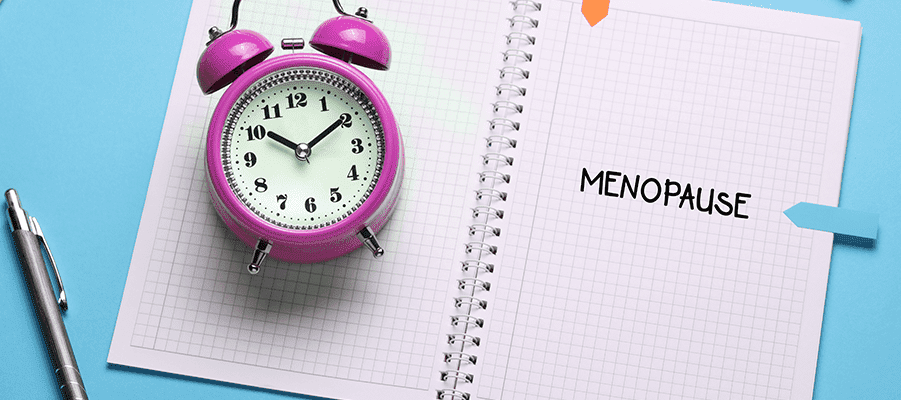Menopause is the time in a woman’s reproductive cycle which marks the end of her periods. It might seem like “a good thing” to many young women, especially those who have a painful menses, or find it to be a draining time period that just appears every month. However, menopause indicates that the woman’s body is going through various hormonal changes, and some of these changes may bring unpleasant experiences. It can really be a tough transition phase for many women.
Women around us usually keep neglecting their health to take care of everyone else around them. Book a health checkup and be aware if they need any medical help.
How to know if it is menopause or something else?
Basically, it is the age combined with the change in menstrual cycle. It is diagnosed after consecutive 12 months have passed without a period. In general, the natural menopause occurs between 45 and 55 years of age. As per different studies, the range of mean age at menopause reported in Indian women appears to be rather young, between 41.9 and 49.4 years.*
How do the menopause symptoms feel like?
First and foremost, the changing levels of estrogen and progesterone, two important female hormones produced by the ovaries, causes symptoms to appear. Not all women experience all symptoms. They may include:
- Change in your period: Irregular periods
- Dryness in vagina
- Hot flashes
- Chills
- Night sweats
- Problems with falling asleep
- Mood changes or mood swings
- Weight gain and a slow metabolism
Medical tests for menopause
At large,menopause can be self-diagnosed. If you are not able to relate to the pattern, do consult a doctor. Also, there is no single lab test that can reliably predicts if a woman is going through menopause. However, a few blood tests may help your doctor understand your body.
A simple blood test that checks your body’s levels of follicle-stimulating hormone (FSH) and estrogen can be asked for. During menopause, FSH levels rise and estrogen levels decline.
Book FSH test here.
Many times, hypothyroidism or low thyroid hormone levels can also mimic symptoms that are similar to menopause. Hence, an additional blood test to check on the thyroid function can be required.
Book thyroid panel here
5 tips to deal with menopause symptoms
1. Acknowledge your mood changes and seek help
The mood changes that come with menopause can get you crying or cranky. Understand that it is not unnatural to happen during this time. Some women may get even bigger mood swings than you. Take control of your mind with relaxation techniques and yoga. Do fun things with friends or family. If you think these measures are not helping, seek help from a medical expert. They may prescribe medicines including a low-dose birth control pill and antidepressants.
2. Learn and find ways to “tackle the hair problem”
Around menopause, you can find your hair to thin or shed faster. At the same time, unwanted hair may grow on your chin and cheeks. Do not overdo hair care products. Avoid the sun, which is drying hair and can cause damage. For unwanted facial hair, take help of wax, bleach, pluck, or laser therapies. If you use hair color, choose coloring products that don’t have harsh chemicals.
3. Revive sex drive
It is very common to have a reduced sex drive during menopause. This occurs due to decreased hormone levels that can cause vaginal dryness and tightness, resulting in pain during sex. Speak with your partner around the challenges you face. This is the time to downplay the focus on sex and set priority on making time to be together, along with foreplay, cuddles, massage, etc. Also, try keeping stress at bay as much as possible, as the mental pressure puts sex drive in park.
4. Try helping yourselves down there
Around menopause, the vagina may get thinner and dryer. Consult a doctor and try water-based vaginal lubricants or vaginal moisturizer. Your expert can also give you prescription vaginal creams or rings, or pills to tackle these vaginal symptoms and painful sex. Also remember, sex can increase the blood flow down there, which keeps things healthy.
5. Keep a diary to track hot flashes
It iswise to know what sets off your hot flashes. It can be caffeine or alcohol, or just a hot room. If you feel a flash setting in, take slow, deep breaths, in your nose and out your mouth. For tough cases, speak with your doctor.
What should you not do during menopause?
- Don’t assume your sex life is over: It is common for both women and men to have lower libido as they age. The sex hormones level may drop as we age, resulting in lower sex drive. You can try lubricants to tackle the pain that may ease the anxiety that comes with a previous painful experience. Also by this time, your relationship is above and beyond just sex.
- Don’t ignore mood changes: Menopause acts as a signal to your brains that your bodies are changing. Denying that fact can lead to some serious outcomes, including depression. Face the changes, do not feel helpless in the changing landscape, and let go of the irreversible ones.
- Don’t blame menopause for your weight gain: Watch your diet and stay physically active. Preventing weight gain and obesity during your middle years is possible.
- Don’t cut down on social support: You may feel disconnected at some times. However, some studies report that menopausal women who had better interactions with family and attended more monthly meetings, had better mental functioning.
The takeaway is to accept your body. Stay strong and stay positive.
Important links:
Book your TSH test here











